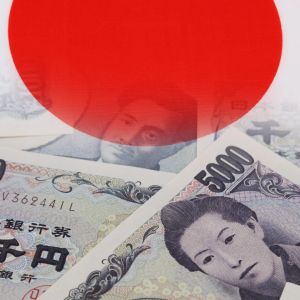Japan’s $3.5 billion auction of 40-year government bonds on Wednesday just crashed through a ten-month low, drawing a bid-to-cover ratio of 2.2, the weakest level since July 2024, according to Financial Times . That number measures how many bids were placed compared to how much debt was offered. For a bond market that usually runs on auto-pilot, this result was a siren. The sale was part of Japan’s scheduled long-term debt issuance, but investor participation dropped fast as domestic life insurers and long-end buyers pulled away. The drop is being described by traders as a “buyers’ strike”. The weak turnout followed a volatile day in the market. On Tuesday, yields on 40-year bonds dropped to 3.29%, hitting a three-week low, after reports that the finance ministry had reached out to investors and brokers. That led to speculation the government might start cutting back on how much super-long debt it sells. But by the morning of the auction, that mood had flipped. Yields climbed back up to 3.32%, and after the result was announced, they pushed higher to 3.37%. 20-year auction triggered concern over longer-dated bonds Last week’s auction of 20-year bonds triggered this round of anxiety. Demand was weak enough to push yields on that debt to 2.6%, a level not seen in decades. The damage didn’t stop there. Yields on 30-year bonds climbed to 3.185%, and 40-year bonds briefly hit 3.675%. All of this fueled growing fears that Japan’s super-long debt market is no longer functioning the way it used to. Barclays analysts said the poor showing confirmed a fragile supply-demand balance, especially as private-sector interest continues to vanish. Prime Minister Shigeru Ishiba added even more pressure last week by comparing Japan’s fiscal position to Greece — a name nobody in Tokyo wants to be in the same sentence with. Japan’s debt-to-GDP ratio has been above 200% since 2020. That number hasn’t budged. The weight of government borrowing has now collided with a change in investor behavior, and it’s making everyone nervous. Officials monitor but give no clear signals Before the auction, Finance Minister Katsunobu Kato told reporters he was “closely monitoring” developments in the bond market. At the same time, Kazuo Ueda, who heads the Bank of Japan, said the central bank is watching volatility in super-long yields, with a focus on how it might affect the rest of the curve, especially short-term bonds. Traders are reading those comments as wait-and-see — not exactly comforting given how fast yields have been moving. Stephen Spratt, a strategist at Société Générale, said the results were “soft, but in line” with what the market was expecting. “The headlines will say lowest since last July, but in the context of a broad shock in yields, the result wasn’t too shocking,” he said. Still, none of this is happening in a vacuum. Bond markets in other rich countries have also been selling off as investors wake up to the reality of more spending, more borrowing, and not enough answers. But in Japan, the market’s issues are layered. The country is still trying to pull itself out of an ultra-loose monetary policy era. That exit has been dragging since the central bank started signaling cuts to bond buying. In June 2024, the BoJ announced it would start reducing its JGB purchases at a rate of ¥400 billion ($2.75 billion) per quarter. That reduction is planned to continue from August 2024 through March 2026. The problem now is that as public buying scales down, private-sector demand hasn’t stepped up. And with life insurers and domestic funds staying on the sidelines, the gaps are showing… fast. Your crypto news deserves attention - KEY Difference Wire puts you on 250+ top sites



















